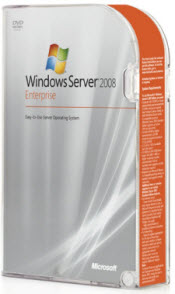Windows "Workstation" 2008 better than Vista? OK then, show me the money!

My post the other day about Windows "Workstation" 2008 (the nickname given to an installation of Windows Server 2008 that's been tweaked to be more of a desktop OS) seemed to have caused a bit of a stir amongst those who believe that the server OS makes a better desktop OS than Vista. OK then, if that's the case, show me the money!

And why would I see much difference. After all, Windows Vista and Windows Server 2008 share the same kernel, key aspects of the OS (such as the registry and drivers) are identical, so why would there be much difference. Sure, each flavor has its strengths and weaknesses (after all, one is marketed as a desktop OS and the other as a server OS), but on since both flavors share the same heritage, there's little room for one flavor to be dramatically different to the other.
Proponents of Windows "Workstation" 2008 make some very bold claims. The OS is faster, more reliable, less sluggish, less prone to crashing, and needs a wipe and restart far less often than Windows Vista. However, the problem I have with these claims is that I've yet to come across anyone who has supplied any proof to back up these claims. Without proof, these claims fall into the same category as "my wife makes the best pumpkin pie" (she does) and "I'm a great driver" (I am). Years of "registry optimizers," "memory boosters" and "diagnostic tools" have made me wary of bold claims that are heavy on the hyperbole but light on proof. I've also tested and debunked plenty of claims that you can access some hidden turbo boost feature in Windows Vista by disabling a service or making a registry tweak.
Also, don't you think that if Windows Server 2008 really did make a better desktop OS than Vista that Microsoft wouldn't have released a tweaked version (maybe called Windows Vista Power Users Special Edition) and given it a, oh, say $750 price tag?
If Windows "Workstation" 2008 is faster than Vista, then don't just tell me, show me. If it's more reliable, explain in what way (what issues were you seeing before that you aren't seeing now?). If Windows "Workstation" 2008 really is so much better than Vista, then proving these points should be trivial.
In lieu of proof, I'm going to offer a few suggestions as to why users might be led to believe that Windows "Workstation" 2008 is a better desktop OS than Vista:
- Self-delusion I have to kick off with this one. I know what it's like to have something that not many other people have, and if you're not careful, that can cloud judgment.
- The SP1 effect Remember, Windows Server 2008 was released over a year following Windows Vista and as such was in a position to benefit from a whole host of bug fixes and code improvements.
- Less junk Now everything that will install on Windows Vista will install on Windows Server 2008, and while you can get most things to work, the added steps mean that you're not likely to want three browser toolbars installed or those six media players. Also, most consumer versions of security software just won't install on the server edition. This means that Windows "Workstation" 2008 installations enjoy far less bloat. That has to make a difference.
- Tweaked-in optimizations Isn't is possible that in the process of converting the server OS into a desktop OS that users have tweaked-in some optimizations that were open to them in the desktop flavor. I was reading a comment the other day from someone who claimed that the Start Menu was more responsive under Windows "Workstation" 2008 than under Windows Vista, but this could be nothing more than the result of the tweaking of a registry value.
But still, with all that said, I remain open-minded. If Windows "Workstation" 2008 really is so much better than Windows Vista, then don't tell me that it is, show me. Until then, the myth that Windows "Workstation" 2008 is significantly better than Windows Vista is, in my book at any rate, busted.